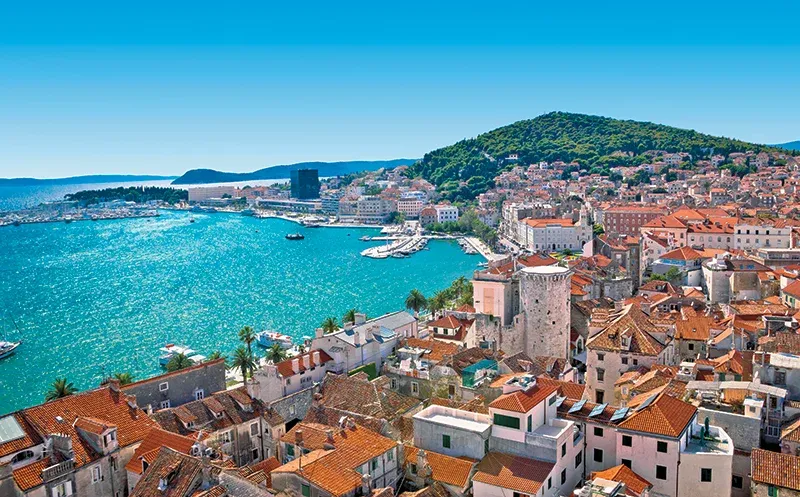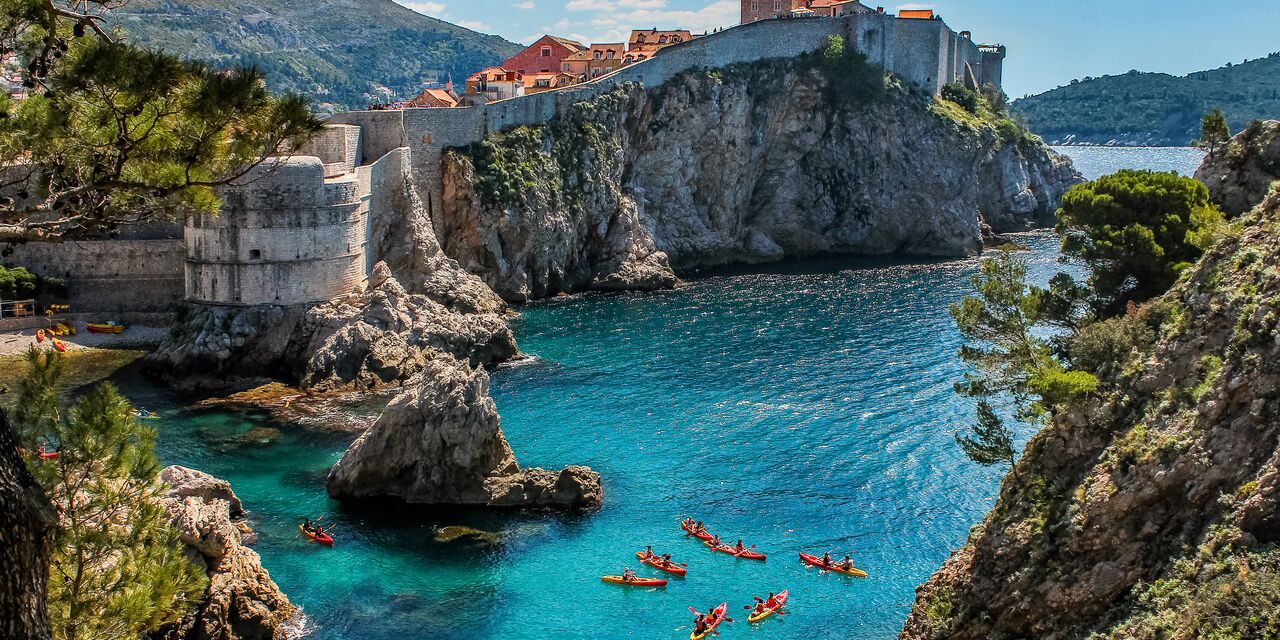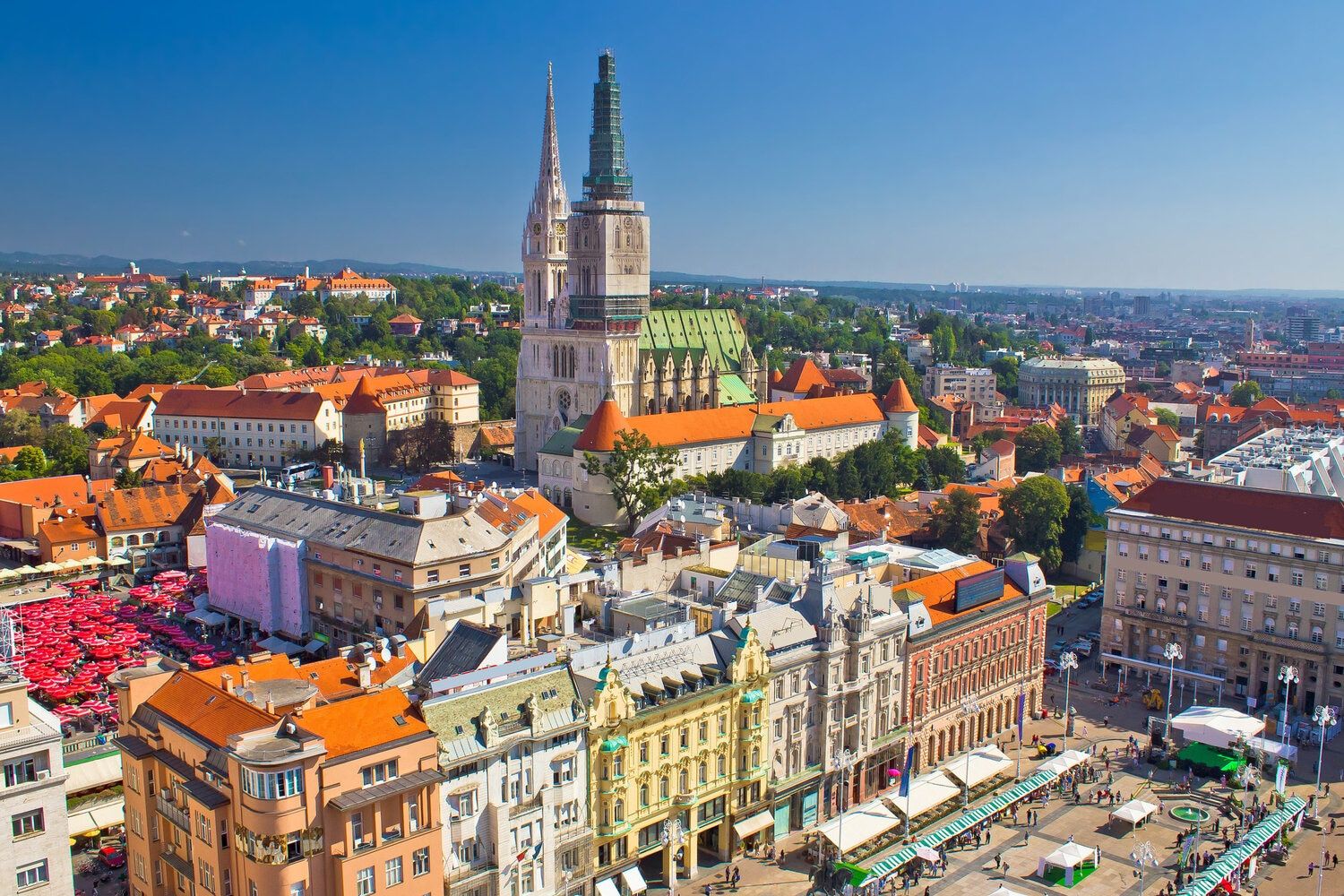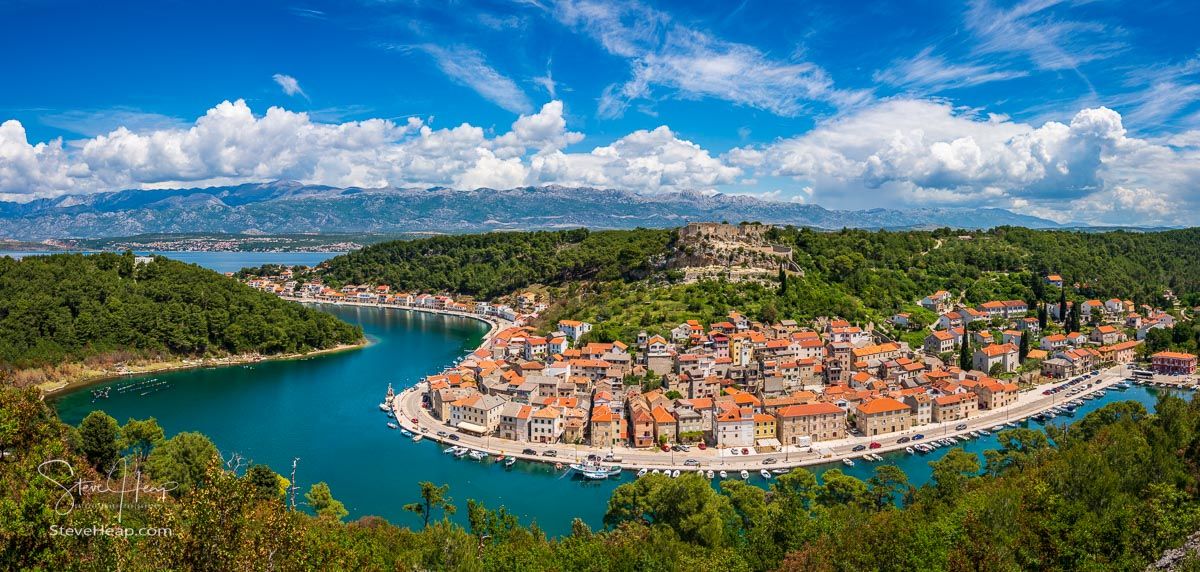CHAT
WITH US
WITH US
GET A
QUOTE
have questions? call us
+44 3330 907053

Blog • Europe • 23 Jan 2025
Share this article
Fancy a bit of sunshine and a change of pace? More and more Brits are looking to Croatia as a viable move from the UK, and it's not hard to see why! If you're considering joining them, you'll likely have questions about property and living costs. This blog offers a quick overview of the current market conditions, regional variations, and some things to consider before making the move, so you can see what Croatia has to offer.
The Croatian real estate market demonstrates marked regional variations, with coastal areas and major cities commanding significantly higher prices than inland regions. According to the Croatian National Bank's property price index, residential real estate values have shown consistent appreciation over the past five years, with particular acceleration in prime locations.
The Dalmatian coast, encompassing major cities like Split and Dubrovnik, represents Croatia's premium property sector. In Dubrovnik's historic centre, apartment prices frequently exceed €6,000 per square metre, reflecting the area's UNESCO World Heritage status and limited supply. The luxury segment has demonstrated remarkable resilience, with properties in prime locations maintaining strong appreciation despite global economic fluctuations.
Split's real estate market has experienced substantial growth, driven by both domestic and international demand. Central districts command prices ranging from €3,500 to €5,000 per square metre, while developing areas like Žnjan and Meje offer newer properties at slightly lower price points. The city's expanding technology sector and strong tourist economy continue to drive property appreciation.
As Croatia's capital and economic centre, Zagreb presents a more stable property market with prices generally lower than premium coastal locations. The upper town (Gornji Grad) and British Square area command the highest prices, typically ranging from €2,800 to €4,000 per square metre for quality apartments. According to the Zagreb Association of Real Estate Agents, newer developments in business districts like Radnička and Trešnjevka offer modern amenities at more moderate price points.
Secondary cities like Rijeka and Zadar present interesting opportunities for property investors. Rijeka's ongoing urban regeneration projects have stimulated property market activity, with prices typically ranging from €1,800 to €2,800 per square metre. Zadar's combination of historical charm and modern development has attracted increasing interest, particularly in newer residential areas offering sea views.

Rental yields vary significantly across Croatia, with tourist areas demonstrating seasonal fluctuations. Zagreb's rental market remains the most stable, providing consistent returns throughout the year. The Croatian Bureau of Statistics reports average rental yields between 4% and 6% annually in major urban centres.
Zagreb's long-term rental market offers the widest range of options:
Coastal cities demonstrate greater seasonal variation:

Croatia's adoption of the Euro has brought increased price transparency but also some inflation in daily living costs. Understanding regional variations helps in budgeting effectively for different locations.
Utility costs remain relatively consistent across Croatia, though usage patterns vary by region:
The Croatian National Electric Company (HEP) provides standardised rates nationwide, though consumption patterns vary significantly between coastal and continental regions due to climate differences.
Public transportation costs remain moderate by European standards:
The Zagreb Electric Tram (ZET) system offers comprehensive coverage, while coastal cities typically operate smaller networks supplemented by intercity buses.
Grocery costs vary between urban and rural areas, with local markets often offering better value:
The Konzum and Lidl supermarket chains maintain consistent pricing nationwide, though local markets often offer seasonal produce at lower prices.
Croatia's healthcare system combines public and private options:
The Croatian Health Insurance Fund (HZZO) provides comprehensive coverage, though many expatriates combine this with private insurance for faster access to specialists.
Understanding regional price differences across Croatia helps inform relocation and investment decisions. The country's diverse regions present distinct cost profiles that significantly impact both daily living expenses and long-term financial planning.
The Dalmatian coastline represents Croatia's premium cost sector, with prices reflecting both the area's desirability and its tourism-driven economy. From Split to Dubrovnik, residents experience higher living costs than anywhere else in the country, particularly during the peak tourist season. The limited developable land and strict building regulations in historic areas create persistent upward pressure on property prices, while the seasonal economy affects daily living costs throughout the year.
Key cost factors for coastal regions:
Inland regions, particularly around Zagreb, offer more stable cost structures with predictable seasonal variations. The capital's diverse economy and substantial permanent population create market conditions that more closely resemble other Central European cities. Business districts continue to expand, driving development of new residential areas with modern amenities.
Continental cost considerations:
Cities like Varaždin, Osijek, and Karlovac present increasingly attractive options for both residents and investors. These areas combine significantly lower living costs with improving infrastructure and growing economic opportunities. Many of these cities have received substantial EU funding for development projects, enhancing their appeal while maintaining cost advantages.
Emerging region benefits:

The Croatian property market offers diverse investment opportunities across its regions, each presenting unique advantages and potential returns. Understanding these regional characteristics helps investors align opportunities with their investment strategies.
Premium locations, particularly in historic centres and coastal areas, continue to demonstrate strong appreciation potential. These areas benefit from limited supply and consistent demand from both domestic and international buyers. Urban regeneration projects in major cities create opportunities for early-stage investment in developing areas.
Investment advantages in prime locations:
Secondary locations present interesting investment prospects, particularly in university cities and developing business districts. These areas often offer better initial yields than prime locations, though they may require longer investment horizons.
Emerging market opportunities:
Success in Croatia's property market requires understanding both financing options and legal requirements. The country's EU membership has standardised many procedures, though local peculiarities remain important.
Croatian banks offer increasingly competitive mortgage products, though terms for non-residents may differ from those available to locals. Interest rates remain relatively attractive by European standards, with various banks competing for quality borrowers.
Key mortgage factors:
The Croatian property purchase process follows clear regulatory frameworks, though navigation often requires professional assistance. Recent harmonisation with EU standards has streamlined many procedures, particularly for EU citizens. However, the system retains distinct characteristics that demand careful attention throughout the purchase process.
Title verification in Croatia requires particular diligence due to historical property registration practices. A comprehensive title search through the Land Registry (zemljišne knjige) proves essential, as some properties may have complicated ownership histories or unresolved claims. Professional legal assistance during this phase helps identify and resolve potential issues before they impact the purchase.
Essential legal considerations:
The documentation process for property transactions in Croatia demands meticulous attention to detail. All foreign buyers must obtain approval from the Ministry of Justice, a process that has been simplified but still requires careful preparation of necessary paperwork.
Key documentation needs:

Croatia's property market shows promising indicators for continued growth and stability. The country's increasing integration into European structures, combined with strategic infrastructure development, supports positive market momentum. Tourism sector expansion continues to drive coastal market growth, while urban development projects enhance inland investment opportunities.
Several economic factors contribute to the market's positive outlook. Croatia's adoption of the Euro has eliminated currency risk for European investors, while Schengen membership enhances the country's accessibility. These developments, combined with continued GDP growth, support sustained market strength.
Key economic indicators:
Current market trends suggest continued evolution of Croatia's property sector. Digital nomad initiatives attract new long-term residents, while improved infrastructure enhances property values in previously overlooked areas. The expansion of business districts in major cities creates new investment opportunities.
Emerging trends include:
Successful navigation of Croatia's property market often requires professional assistance. Various service providers offer specialized support throughout the purchase and investment process.
Engagement of a qualified lawyer proves essential for property transactions. Legal professionals provide crucial guidance through documentation requirements and ensure compliance with all regulations.
Key legal support areas:
Financial advisors and institutions offer specialised services for property investors. Their expertise helps optimize investment structures and secure appropriate financing.
Essential financial services:
The complexity of relocating to Croatia and investing in its property market requires careful planning and professional support. Deliver1 specialises in managing international relocations to Croatia, offering comprehensive services to ensure a smooth transition.
Our dedicated team provides:
Contact Deliver1's international moving specialists today to discuss your relocation needs and receive a free quote. Our experience in UK to Croatia moves ensures all aspects of your relocation are handled professionally, allowing you to focus on beginning your new life in Croatia.
We love hearing from you-so please get in touch with any questions or queries.
We love hearing from you-so please get in touch with any questions or queries.
